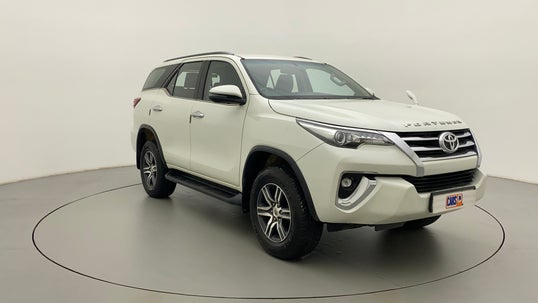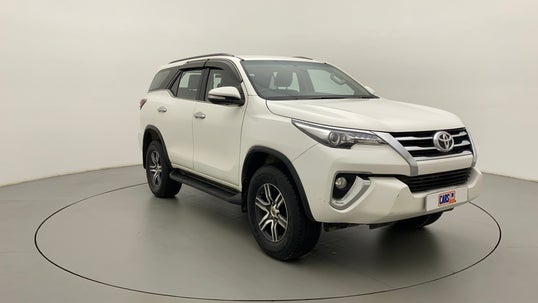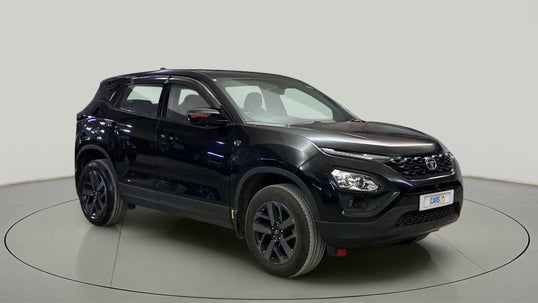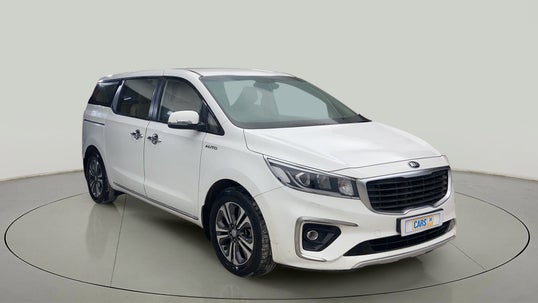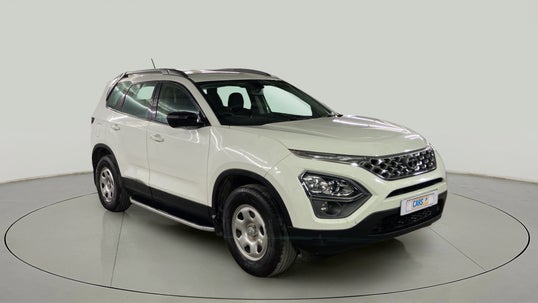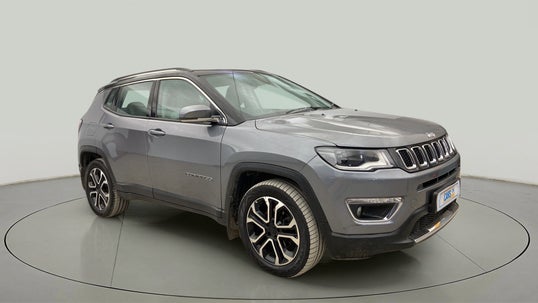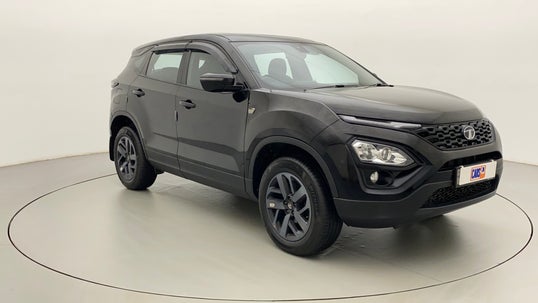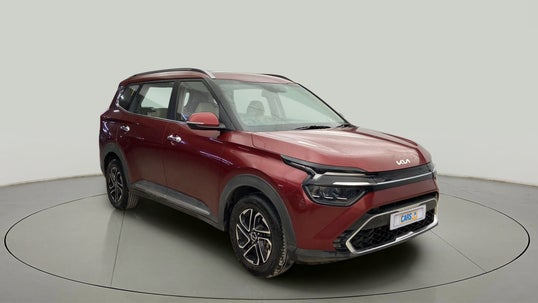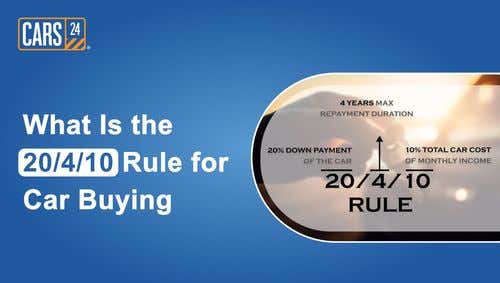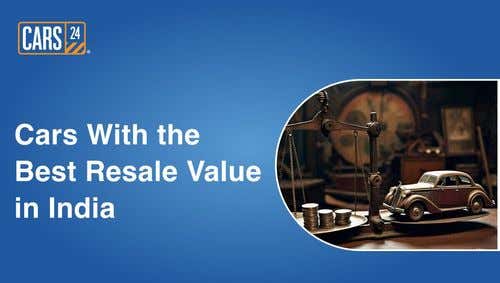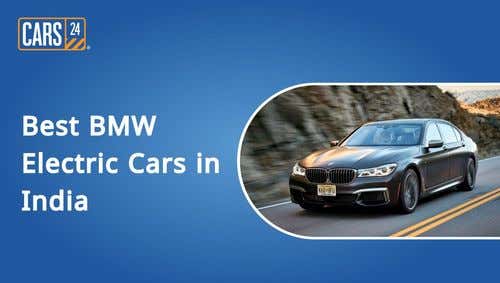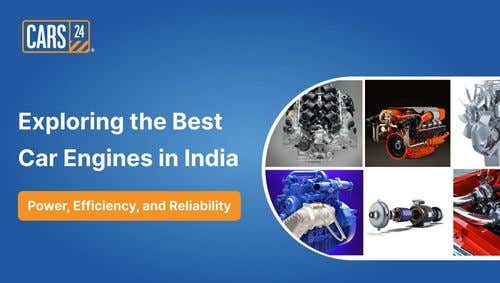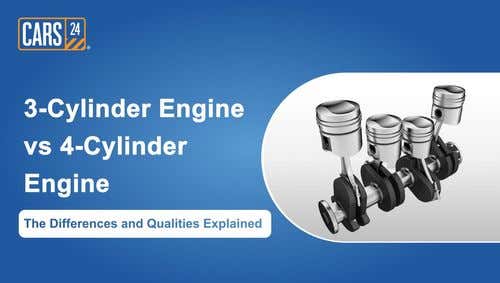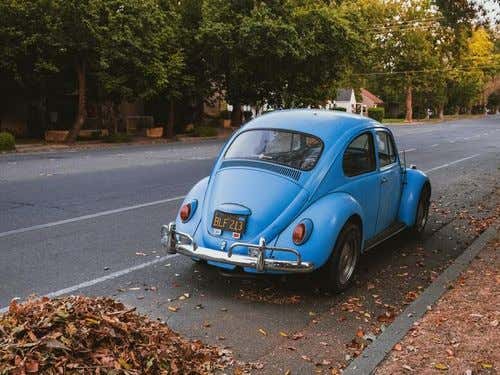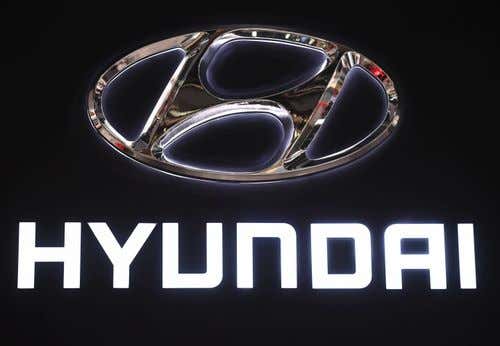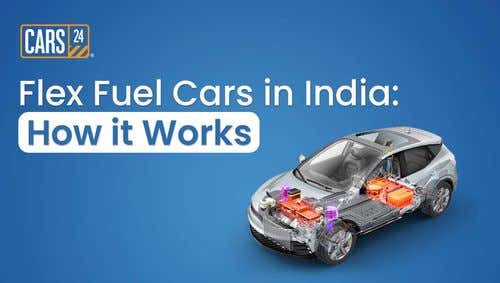What Is BHP And Why Is Brake Horsepower Important in a Car?

Updated on: 21st December, 2023 IST
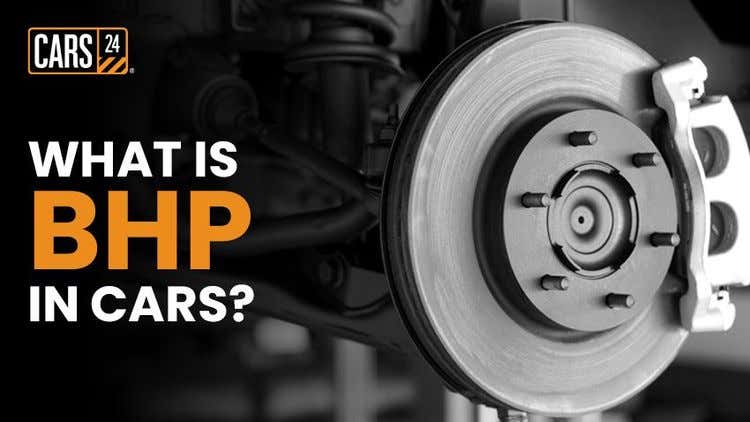
Welcome to the fascinating world of automobiles, where we're all about unravelling the mysteries behind the wheel, one acronym at a time. Think of BHP as the rhythmic heartbeat of your car, the invisible force that breathes life into your car. If you want to know about the full form of BHP, its significance in both cars and engines and its intriguing partnership with torque, you've come to the right place.
In this blog, we'll shed light on the profound impact BHP has on the way your car operates and how it makes you feel behind the wheel. It's time to discover how this seemingly mysterious concept transforms your car into a powerhouse on the road. Let's get started!
Table of Contents
What is BHP in Cars?
Ever found yourself wondering, "What is BHP, and how does it influence my driving experience?" The letters BHP stand for brake horsepower, which is a unit of measurement used to describe the power generated by a car's engine or electric motor for propulsion.
Now, let's dive deeper into this concept. When your car's engine is in action, it burns fuel. These fuels create controlled explosions inside the engine, akin to tiny bursts of power. It's this power that sets a critical component called the crankshaft into motion. Think of the crankshaft as your car engine's beating heart.
As the crankshaft spins, it generates the power that ultimately moves your car. To translate this power into motion, there's the gearbox, which functions as a sort of intermediary. It takes the power generated by the engine and efficiently transmits it to the wheels.
However, when it comes to electric cars, the process simplifies further. There's no need for a gearbox. The power generated by the electric motor goes directly to the wheels, streamlining power delivery.
So, whether you're driving a traditional fuel-powered car or an electric one, remember that BHP is all about the muscle that propels your vehicle.
Why is BHP Important in a Car?
BHP, or Brake Horsepower, isn't just a number; it's a key factor that influences various aspects of your driving experience and serves as your car's powerhouse, dictating its speed, strength, and overall capabilities on the road.
Here's why BHP matters and how it influences your car's performance:
1. Top speed
- BHP determines the top speed your car can achieve. Cars with higher BHP are more suited for the highway as it’s much easier for them to cruise at highway speeds without getting into higher RPMs
- Keep in mind that higher BHP isn't the sole indicator of top speed; your car's weight also plays a role, this is called power-to-weight ratio
2. Adaptation to Usage
- The BHP requirement varies based on your driving habits
- For city commuters, a car with lower BHP can suffice because city speeds rarely demand excessive power
- In contrast, frequent highway travellers benefit from higher BHP as it helps maintain cruising speeds more effortlessly, ensuring efficient long-distance journeys
3. Engine Choices
- Many car models offer diverse engine options, each with varying levels of power measured in BHP
- As a general rule, cars with more BHP typically come with a higher price tag, both in terms of initial purchase and ongoing fuel costs
4. Fuel Efficiency Considerations
- It's crucial to weigh the advantages of higher BHP against increased fuel consumption, as more powerful engines often burn more fuel
- Opt for the right balance between power and fuel efficiency that aligns with your budget and driving needs
Also Read: Brake System In Automobile
How is BHP Measured?
Measuring BHP is a crucial step in understanding your car's potential. It's done using specialised equipment, typically a dynamometer.
Here's how it works:
1. Dynamometer Basics
- A dynamometer, often called a dyno, is like a fitness machine for engines and is designed to precisely measure the engine's power output.
2. Engine Connection
- To measure BHP, the engine is connected to the dynamometer typically through the car’s ECU. This connection allows the dyno to 'feel' the engine's power.
3. Revving Up
- The engine is then revved up to its maximum capacity while on a chassis dynamometer. This simulates the real-world conditions where you need the most power, like overtaking on the highway.
4. Power Measurement
- As the engine roars, the dynamometer measures the power it generates. This measurement includes all the energy produced by the engine, which is crucial for understanding its capabilities.
5. Expressing BHP
- The power measured is expressed in BHP. It's called 'brake' because it accounts for the engine's power after accounting for losses due to friction and other factors. This gives us a clear and standardised idea of the engine's strength. Wheel horsepower (WHP), is the actual horsepower that reaches the wheels after accounting for losses in parts such as the gearbox, axle, etc.
6. Diagnostic Tool
- BHP measurement on a dynamometer is not just for bragging rights; it's a valuable diagnostic tool. It helps identify engine issues and allows for fine-tuning to optimise performance and even fuel efficiency.
BHP Vs Horsepower
Ever wondered why there are multiple units to measure power, like BHP and HP (Horsepower)? Let's break it down and clear the confusion.
The metric unit of power is called Horsepower (HP) and is sometimes expressed as PS, which originates from the German 'pferdestärke,' meaning horsepower. It all goes back to James Watt, who introduced horsepower as a measure of the energy exerted by a horse lifting a 33,000-pound weight up a 1,000-foot mine shaft in a minute.
Car manufacturers often use HP or PS for power ratings, mainly because they sell cars in countries using the metric system. However, in India, retailers prefer the imperial Brake Horsepower (BHP).
French cars may use 'CV,' which is equivalent to HP or PS, standing for 'cheval-vapeur,' meaning horsepower. Interestingly, it literally translates to 'steam horses.'
Here's the catch - BHP and HP/PS/CV aren't precisely equal. 1 HP is approximately 0.986 BHP. This leads to variations in power figures you might come across when researching cars.
For instance, a car listed with 150 HP could be around 148 BHP due to this conversion difference. The discrepancy arises from how BHP and HP are measured, contributing to variations in the reported power of vehicles.
In essence, understanding these power units helps decipher car specifications and make informed choices when shopping for vehicles.
Also Read: What is Torque in Cars and How Does It Work?
Why Do Indian Cars Have Low BHP?
Indian cars often feature lower BHP ratings compared to their global counterparts, and this phenomenon is influenced by several factors specific to the Indian automotive landscape.
Let's take a closer look at some of the factors that play a significant role in this:
1. Fuel Efficiency
- Indian roads and traffic conditions often entail long commutes and fuel costs can be a significant expense
- As a result, manufacturers prioritise fuel efficiency in their designs to cater to the cost-conscious Indian consumer
- This optimisation may lead to slightly lower BHP figures
2. Taxation Policies
- The Indian government imposes higher taxes on cars with larger engines and as a result higher BHP, making such vehicles less affordable for many
- To remain competitive and accessible, carmakers opt for smaller engines, aligning with taxation policies
3. Traffic Dynamics
- Indian cities are known for traffic congestion
- Smaller, less powerful engines are practical for navigating these conditions efficiently, making them a preferred choice among Indian consumers
4. Cost-Conscious Market
- Indian consumers often prioritise the initial cost of a car
- Lower BHP engines are generally cheaper to produce, contributing to their affordability and mass-market appeal
Also Read: Automatic Braking System in Car
Powerhouse on Wheels: Some of the Highest BHP Cars in India
For those in India with a passion for powerful cars and a need for speed, we've curated a list that's bound to get your heart racing. These cars are not just incredibly powerful, they are the epitome of exhilarating performance. While they do come with a hefty price tag, they represent the pinnacle of automotive engineering when it comes to horsepower.
Let's take a look at the thrilling lineup of some of the highest BHP cars in India, sure to satiate your craving for sheer power and speed:
1. Porsche 911 Turbo S (640 BHP)
- The Porsche 911 Turbo S is one of the most powerful cars available for sale in India, and one of the most powerful production cars in the world
- It is powered by a 3.8-litre twin-turbocharged flat-six engine that produces a massive 640 BHP and 800 Nm of torque
- The 911 Turbo S can accelerate from 0 to 100 km/h in just 2.7 seconds and has a top speed of 330 km/h
2. Audi R8 Performance (601 BHP)
- The Audi R8 Performance is another incredibly powerful car available for sale in India
- It is powered by a 5.2-litre V10 engine that produces 601 BHP and 560 Nm of torque
- The R8 Performance can accelerate from 0 to 100 km/h in just 3.2 seconds and has a top speed of 330 km/h
3. BMW M8 Competition Coupe (617 BHP)
- The BMW M8 Competition Coupe is a high-performance luxury coupe
- It is powered by a 4.4-litre twin-turbocharged V8 engine that produces 617 BHP and 750 Nm of torque
- The M8 Competition Coupe can accelerate from 0 to 100 km/h in just 3.2 seconds and has a top speed of 305 km/h
4. Lamborghini Huracan STO (640 BHP)
- The Lamborghini Huracan STO is a track-focused version of the Huracan supercar
- It is powered by a 5.2-litre V10 engine that produces 640 BHP and 565 Nm of torque
- The Huracan STO can accelerate from 0 to 100 km/h in just 3.0 seconds and has a top speed of 310 km/h
5. Ferrari F8 Tributo (710 BHP)
- The Ferrari F8 Tributo is a mid-engine supercar
- It is powered by a 3.9-litre twin-turbocharged V8 engine that produces 710 BHP and 770 Nm of torque
- The F8 Tributo can accelerate from 0 to 100 km/h in just 2.9 seconds and has a top speed of 340 km/h
6. Ferrari 812 Superfast (800 BHP)
- The Ferrari 812 Superfast stands as a pinnacle of power and performance, captivating car enthusiasts worldwide
- It boasts an awe-inspiring 6.5-litre V12 engine that churns out a staggering 800 BHP and a torque output of 718 Nm
- This Italian marvel achieves 0 to 100 km/h in just 2.9 seconds, and its top speed gracefully breaches 340 km/h
Please note that this list is based on the manufacturer's claimed horsepower figures. The actual horsepower output may vary depending on the specific model year and configuration of the vehicle.
Also Read: What is Anti-Lock Braking Systems (ABS)?
The Bottom Line
In conclusion, Brake Horsepower, or BHP, is the magical force that gets your car going. It helps determine how fast your car can sprint and how quickly it can do that. Whether you're cruising in an everyday sedan or unleashing the power of a supercar, understanding BHP lets you appreciate the muscle under the hood.
FAQs
Q. How to Find Out My Car’s BHP?
To find out your car's BHP, you can check the owner's manual that came with your vehicle. Alternatively, you can search for your car's make, model, and year online to find its specifications, including its BHP rating.
Q. What’s the Difference Between BHP and Torque?
While BHP measures an engine's power, torque measures its twisting force. Torque is essential for acceleration and towing power, while BHP indicates the overall strength and speed potential of the engine.
Q. What Are the Benefits of a High BHP Car?
High BHP cars offer exhilarating speed and acceleration, making them ideal for those who enjoy spirited driving. They can also handle challenging driving conditions more effectively and provide a thrilling driving experience for enthusiasts.
Recently Added Cars to Buy
Other Blogs
- Recent
- Featured
Popular Cities to Sell Car

